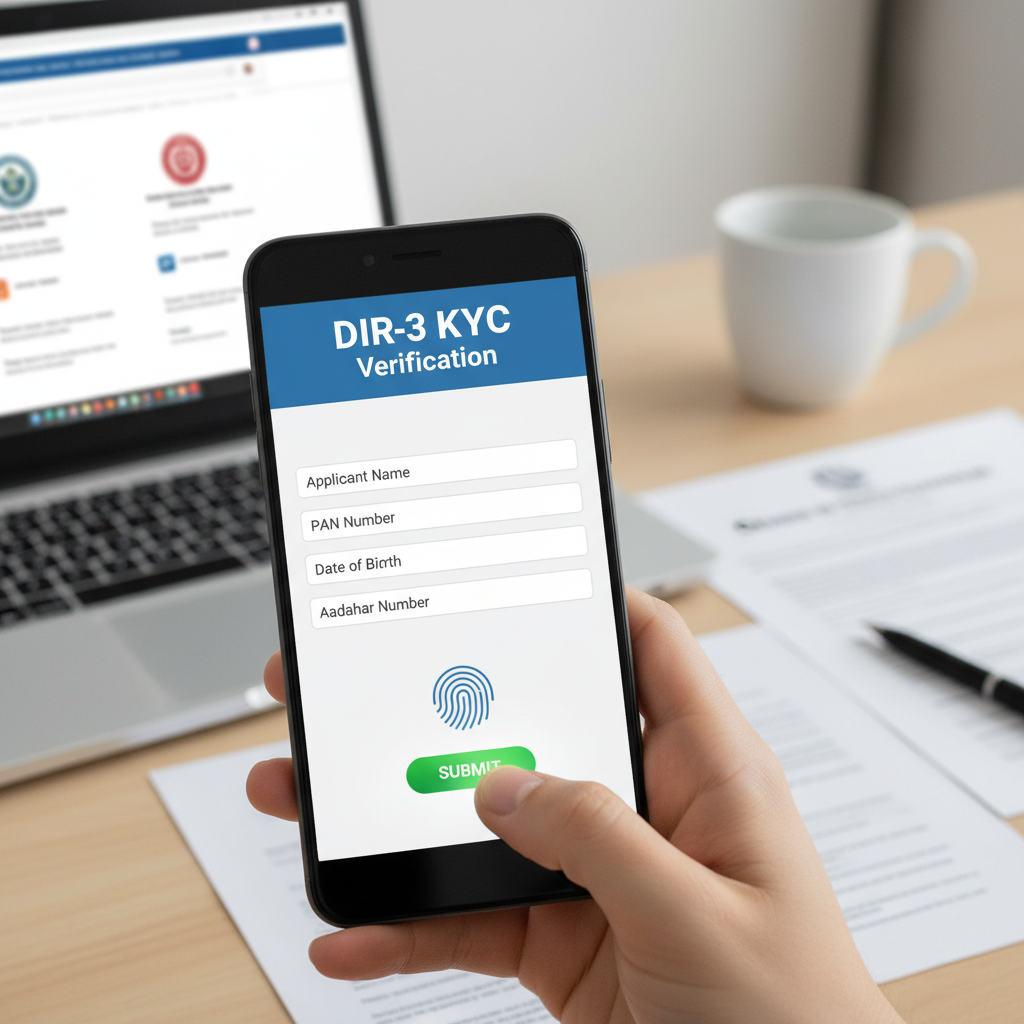Starting your own business is a big step. Choosing the right business structure is crucial. Knowing the difference between private and public companies is key. This knowledge helps you make choices that fit your business dreams.
In this guide, we’ll explore private and public companies. We’ll look at their governance, equity, transparency, and funding. By the end, you’ll know how to pick the best option for your business.
Key Takeaways:
- Private companies are owned by founders, executive management, and private investors, while public companies are owned by the public through stock ownership.
- Private companies obtain capital from private sources, while public companies raise funds through selling shares on stock exchanges or issuing debt.
- Public companies must regularly disclose financial and business information to shareholders and the public, while private companies have less stringent transparency requirements.
- Private companies enjoy more flexibility in decision-making and less regulatory scrutiny compared to public companies.
- Public companies have access to capital markets and enhanced credibility, but face pressure to meet short-term expectations and increased regulatory compliances.
Overview of Private and Public Companies
Companies can be divided into two main types: private and public. Knowing the differences between them is key for entrepreneurs, investors, and business enthusiasts. Let’s explore what makes private and public companies unique.
Definition of a Private Company
A private company is owned by a few individuals or investors. They are not listed on stock exchanges and don’t sell shares to the public. These companies range from small family businesses to large corporations like Koch Industries and Deloitte. The corporate ownership structure of private companies helps them keep their operations and finances private.
Definition of a Public Company
A public company, on the other hand, has sold shares to the public through an IPO. These companies are listed on stock exchanges, and their shares can be traded by investors. They must follow strict rules and disclose financial information regularly. Famous public companies include Apple and Amazon.
- Private companies are owned by a few individuals, while public companies have shares owned by many.
- Private companies don’t list on stock exchanges, but public companies do through IPOs.
- Public companies face stricter rules and must disclose more information than private companies.
“Choosing to go public or stay private is a big decision for a company. It affects the business, its owners, and its stakeholders a lot.”
To better understand the differences, let’s look at a table:
| Characteristic | Private Company | Public Company |
|---|---|---|
| Ownership | Privately held by a small group of individuals or investors | Publicly traded, with ownership divided among shareholders |
| Stock Exchange Listing | Not listed on stock exchanges | Listed on stock exchanges, with shares traded publicly |
| Regulatory Requirements | Less stringent, with fewer disclosure obligations | Strict regulations, requiring regular filing of disclosures and financial statements |
| Access to Capital | Limited to private funding sources | Can raise capital through public markets and stock exchanges |
In summary, the main difference between private and public companies is in ownership, rules, and funding. Knowing these differences is vital for anyone involved in business.
Ownership and Shareholders
Private and public companies have different ways of owning and sharing ownership. It’s important for investors, entrepreneurs, and others to understand these differences.
Ownership Structure of Private Companies
Private companies are usually owned by a few people. This can be founders, family, or private investors. Their shares are not traded publicly, giving these owners control and privacy.
“Private companies offer founders and investors the ability to maintain tight control over their business while keeping financial information confidential.”
Ownership Structure of Public Companies
Public companies, however, have shares that anyone can buy or sell. This leads to a wide range of shareholders. No single person has much control because of this spread.
Minimum Shareholders Required
The number of shareholders needed is different for private and public companies. In India, private companies need at least 2 members but no more than 200. Public companies, however, need a minimum of 7 members and can have as many as they want.
| Aspect | Private Company | Public Company |
|---|---|---|
| Ownership | Closely held by founders, family, or private investors | Shares publicly traded on stock exchanges |
| Shareholder Base | Small, select group of individuals or entities | Diverse, large number of individual and institutional investors |
| Minimum Shareholders | 2 members | 7 members |
| Maximum Shareholders | 200 members | No upper limit |
Management and Control
Private and public companies manage and control differently. Their decision-making and governance models vary. Knowing these differences is key for investors and anyone interested in these businesses.
Decision-Making in Private Companies
Private companies make decisions quickly because of their small, focused teams. This setup allows for fast, flexible choices without needing to check with many people. Owners can focus on long-term goals without worrying about short-term shareholder demands.
Corporate Governance in Public Companies
Public companies face strict governance rules. They must answer to many shareholders and follow SEC rules in the U.S. A board of directors, chosen by shareholders, oversees these companies. They ensure the company is run right.
Shareholders in public companies can shape decisions with their votes. They can influence big choices like executive pay and board members. This makes decision-making in public companies more complex, as management must please many groups.
| Aspect | Private Companies | Public Companies |
|---|---|---|
| Decision-Making | Concentrated among owners or key individuals | Involves board of directors and shareholders |
| Governance | Flexible and less formal | Strict regulations and accountability to shareholders |
| Shareholder Influence | Limited to owners | Voting rights and ability to impact management decisions |
It’s important to know how private and public companies manage and control. Private companies are flexible and quick, while public companies are transparent and accountable to more people.
Share Transferability
Private and public companies differ in share transferability. Private company shares face restrictions, as outlined in shareholder agreements. This limits how easily you can sell your shares.
Public company shares, however, can be bought and sold on stock exchanges. This makes it easier for investors to move in and out of their investments.
Here are some key takeaways regarding share transferability in private and public companies:
- Private company shares are subject to transfer restrictions, limiting liquidity
- Public company shares are freely tradable on stock exchanges, providing greater liquidity
- Share transfer restrictions in private companies are outlined in shareholder agreements
- Ease of share transferability in public companies allows investors to enter or exit investments more easily
The table below summarizes the key differences in share transferability between private and public companies:
| Private Company | Public Company |
|---|---|
| Shares are not freely transferable | Shares are freely tradable on stock exchanges |
| Transfer restrictions outlined in shareholder agreements | No transfer restrictions, subject to regulatory compliance |
| Limited liquidity for investors | Greater liquidity for investors |
| Difficulty in entering or exiting investments | Ease of entering or exiting investments |
Investors should consider share transferability when choosing between private and public companies. Private companies offer control but have limited share transferability. Public companies provide the advantage of freely tradable shares and better liquidity.
For more information on converting a private limited company into an Limited Liability Partnership (LLP) in India, you can refer to this comprehensive guide: Conversion of Company into LLP in.
Regulatory Compliances
Private and public companies have different rules to follow. It’s important for businesses to know these rules to stay in line.
Reporting Requirements for Private Companies
In India, private companies must follow rules from the Ministry of Corporate Affairs and the Companies Act, 2013. Some key things they need to do include:
- Filing a declaration of commencement of business within 180 days of incorporation
- Appointing a statutory auditor within 30 days of incorporation
- Holding the first board meeting within 30 days of incorporation
- Filing annual financial statements in XBRL format within 30 days of the annual general meeting
- Complying with ROC (Registrar of Companies) regulations
Strict Regulations for Public Companies
Public companies have to follow stricter rules because they have more shareholders and trade on public exchanges. Some of these strict rules include:
- Regular filing of financial reports and other disclosures with the Securities and Exchange Commission (SEC)
- Adhering to corporate governance standards and best practices
- Maintaining transparency in financial reporting and disclosures
- Complying with listing requirements of stock exchanges
| Aspect | Private Companies | Public Companies |
|---|---|---|
| Regulatory Scrutiny | Less stringent | More stringent |
| Financial Disclosures | Limited, unless certain thresholds are met | Regular and detailed |
| Compliance Costs | Lower | Higher |
| Transparency | Less emphasis | Highly emphasized |
Listing on Stock Exchange
Private and public companies differ mainly in their stock exchange listing. Private companies are not listed and their shares are not traded publicly. Public companies, however, can offer shares to the public through an IPO. They then list and trade on stock exchanges.
Private Companies and Stock Exchanges
Private companies keep their financial details private. They also have rules on who can buy or sell shares. This makes it harder for investors to trade shares.
Public Companies and Stock Exchanges
Public companies can raise a lot of money through an IPO. They list on stock exchanges, making it easier for investors to buy and sell shares. But, they must follow strict rules and report their finances regularly.
Public companies are easier to value because of the available information. This helps investors make better choices. For more on public company finances, like e-filing income tax in India, visit here.
| Private Companies | Public Companies |
|---|---|
| Not listed on stock exchanges | Listed on stock exchanges after IPO |
| Shares not publicly traded | Shares publicly traded, providing liquidity |
| Limited disclosure requirements | Strict disclosure requirements (e.g., 10-Q, 10-K) |
| Restricted share transferability | Shares can be easily bought and sold |
In summary, listing on stock exchanges is a key difference between private and public companies. Private companies keep their information private and control their shares. Public companies, on the other hand, have more access to markets and liquidity. But, they face more rules and must be transparent.
Minimum Capital Requirement
Private and public companies in India have different minimum capital needs. Private companies need only Rs. 1,00,000 in paid-up capital. Public companies, however, must have at least Rs. 5,00,000, as the Companies Act, 2013 requires.
Public companies need more capital because they can sell shares to the public. This lets them take on bigger projects and grow faster than private companies.
According to Section 3(1)(a) of the Companies Act, 2013, for the incorporation of a public company, there must be at least seven or more members.
Public companies also have rules about directors and shareholders:
- A public limited company needs at least 3 directors but no more than 15.
- They must have a minimum of 7 shareholders to start.
| Requirement | Private Company | Public Company |
|---|---|---|
| Minimum Paid-up Capital | Rs. 1,00,000 | Rs. 5,00,000 |
| Minimum Number of Members | 2 | 7 |
| Maximum Number of Members | 200 (excluding current and ex-employees) | No limit |
Funding Sources
Choosing the right funding is key for both private and public companies. Private companies usually get funding from private sources. Public companies can tap into public capital markets. Knowing your funding options helps businesses make smart choices and get the capital they need.
Private Funding for Private Companies
Private companies often look to private funding sources. These include:
- Personal savings: Entrepreneurs often use their own money, between $5,000 and $10,000, to start their ventures.
- Friends and family: Many companies start with investments from loved ones.
- Bank loans: Companies with solid financials can get loans by showing their business plans and financials.
- Angel investors: Wealthy individuals invest their own money for equity in the company.
- Venture capitalists: These firms invest in companies with high growth potential, often in the millions.
- Crowdfunding: Platforms like GoFundMe and Kickstarter help companies raise funds by tapping into social networks.
Public Funding for Public Companies
Public companies can access public capital markets. This allows them to raise funds through:
- Initial Public Offerings (IPOs): Companies can sell shares to the public for the first time to raise capital.
- Secondary offerings: Listed companies can issue new shares to raise more funds.
- Debt instruments: Companies can issue bonds or other debt to raise capital from investors.
- Retained earnings: Companies can reinvest their profits for growth and expansion.
| Funding Source | Private Companies | Public Companies |
|---|---|---|
| Personal Savings | Common | Not Applicable |
| Friends and Family | Common | Not Applicable |
| Bank Loans | Available with strong financials | Available with strong financials |
| Angel Investors | Common | Not Applicable |
| Venture Capitalists | Common | Not Applicable |
| Crowdfunding | Viable option | Not Applicable |
| IPOs | Not Applicable | Common |
| Secondary Offerings | Not Applicable | Common |
| Debt Instruments | Limited options | Common |
| Retained Earnings | Available | Available |
Businesses consider many factors when deciding on funding. These include growth plans, operational needs, and the company’s stage of development.
Transparency Requirements
Transparency is key for public companies. They must share a lot of information with investors and the public. This includes details about their money, business, and how they’re doing.
As a shareholder or investor in a public company, you get to see important financial reports. You also get annual reports and other documents from the Securities and Exchange Commission (SEC). This helps you make smart choices about your money.
Private companies, on the other hand, don’t have to share as much. They don’t have to tell the public about their money or business. This lets them keep things private and avoid public scrutiny.
| Transparency Aspect | Public Company | Private Company |
|---|---|---|
| Financial Disclosures | Required to file regular financial statements and annual reports with the SEC | Not required to disclose financial information to the public |
| Business Activities | Must disclose material information about business operations and performance | Can maintain confidentiality about business activities and strategies |
| Regulatory Filings | Subject to various regulatory filings and disclosures, such as Form 10-K and Form 10-Q | Minimal regulatory filing requirements, mainly limited to tax returns and state-level filings |
Private companies get to keep more to themselves. But, they might still have to share some info with their investors or the government. This depends on their situation and agreements.
Key Difference between Private Company and Public Company
It’s important to know the main differences between private and public companies. This knowledge is key for entrepreneurs, investors, and business experts. Both types aim to make profits and grow, but they differ in ownership, rules, and getting money.
Ownership and Control
Private companies are owned by a few people, like founders or family. This means they have more say in how the company runs. Public companies, however, have many owners because their shares are sold on stock exchanges.
Regulatory Obligations
Public companies face more rules and must share financial details openly. This is because of laws from agencies like the SEC in the U.S. Private companies, though, have fewer rules and can keep more to themselves.
Access to Capital
Getting money is a big difference. Public companies can sell shares to many investors, which helps them grow. Private companies, however, must rely on fewer sources like venture capital.
| Characteristic | Private Company | Public Company |
|---|---|---|
| Ownership | Concentrated ownership among a small group of individuals | Dispersed ownership with shares traded on public stock exchanges |
| Shareholders | Maximum of 200 shareholders | Unlimited number of shareholders |
| Regulatory Obligations | Fewer regulatory requirements and more confidentiality | Strict regulations, detailed disclosures, and compliance obligations |
| Access to Capital | Limited to private funding sources such as venture capital and private equity | Can raise capital from the public through the sale of shares |
| Management | More flexible management and fewer formalities | Stricter corporate governance requirements |
In summary, private and public companies differ mainly in who owns them, the rules they follow, and how they get money. Private companies have more control but less money. Public companies have more money but follow stricter rules.
- Private companies have concentrated ownership and control
- Public companies are subject to strict regulations and disclosure requirements
- Public companies have better access to capital through public stock markets
Advantages of Private Companies
Private companies have many benefits for entrepreneurs and business owners. They offer more control and keep business secrets safe. Unlike public companies, they don’t have to share their financial details with everyone.
One big plus of private companies is their ability to make decisions easily. They can focus on long-term plans without worrying about what others think. This helps them adapt fast to market changes and grab new chances.
Maintain Control and Confidentiality
With a private company, you can run your business your way. You don’t have to deal with outside investors telling you what to do. Plus, you don’t have to share your financials or business plans with the public. This keeps your edge and builds trust with your team.
Flexibility in Decision-Making
Private companies can make choices without worrying about what others think. They can focus on growing over time instead of making quick money. This means they can invest in new ideas, expand, or take smart risks without being watched too closely.
| Private Company | Public Company |
|---|---|
| Minimum 2 shareholders | Minimum 7 shareholders |
| Minimum 2 directors | Minimum 3 directors |
| Cannot be listed on stock exchange | Can be listed or unlisted |
| Restricted share transfer | Free share transfer |
| Cannot invite public to subscribe for shares | Can invite public through IPO or FPO |
| File annual financial statements to ROC | Disclose quarterly and yearly financial statements to public |
Choosing a private company lets you keep control, keep things private, and make decisions freely. This way, you can work towards your long-term goals and grow sustainably.
Advantages of Public Companies
Public companies have two big benefits: they can get money from capital markets and they look more credible. These points help a company grow and succeed over time.
Access to Capital Markets
Being public lets a company raise a lot of money. They can sell shares to many investors. This helps them grow, do research, or buy other companies.
Public companies can get more money than private ones. Private companies usually get money from a few investors or venture capitalists.
Enhanced Credibility and Reputation
Being public makes a company seem more trustworthy. Public companies follow strict rules and are open about their money and how they run things. This makes investors, customers, and partners trust them more.
Being public also makes a company more known. They get more media and analyst attention. This helps their reputation and trustworthiness with everyone.
| Factor | Private Company | Public Company |
|---|---|---|
| Access to Capital | Limited to private investors and venture capitalists | Can raise substantial funds through public capital markets |
| Credibility and Reputation | Relies on company’s track record and relationships | Enhanced by regulatory compliance and market visibility |
In summary, public companies get big benefits like more money and being seen as more credible. These help them grow, innovate, and be strong in the market.
Disadvantages of Private Companies
Private companies have their perks, like keeping control and secrets. But, they also have downsides that business owners should think about. One big issue is they often can’t get enough money to grow and expand.
These companies usually get money from personal savings, loans from loved ones, or private investors. Getting a lot of money is tough, especially when compared to public companies. Public companies can get money from the public and attract more investors. This makes it hard for private companies to start new projects, buy other companies, or invest in research.
Another problem is finding and keeping the best workers. Public companies can offer stock options and other perks that private companies can’t match. This makes it tough for private companies to compete for the best employees. This can hurt their performance and growth.
| Private Company | Public Company |
|---|---|
| Limited access to capital | Access to public markets and a wider pool of investors |
| Difficulty in attracting top talent | Stock options and incentives to attract skilled professionals |
| Restricted growth and expansion opportunities | Additional finance available for pursuing new projects and acquisitions |
In conclusion, while private companies have their benefits, entrepreneurs should think about the downsides. These include limited money and trouble finding the best workers. Before deciding on this structure, it’s important to weigh these points carefully.
Disadvantages of Public Companies
Going public has its perks, like getting money from investors and looking more credible. But, public companies also have big downsides. These can affect how they run, make decisions, and plan for the future.
Increased Regulatory Scrutiny
Public companies deal with a lot of rules and checks. They must follow strict rules from groups like the Securities and Exchange Commission (SEC). This means they have to share their financial info often and accurately.
If they don’t follow these rules, they face big penalties. This can hurt their reputation a lot.
They also have to follow global financial standards, like GAAP or IFRS. Keeping up with these standards can mean hiring more staff. This raises their costs.
Pressure to Meet Short-Term Expectations
Public companies feel a lot of pressure to do well quickly. This comes from investors who own part of the company. They want to see good results every quarter.
This focus on quick wins can make it hard for them to think about the future. They might not be able to change fast enough when the market changes.
| Disadvantage | Impact |
|---|---|
| Increased regulatory scrutiny | Time-consuming and costly compliance measures |
| Pressure to meet short-term expectations | Focus on immediate results over long-term growth |
| Less flexibility in decision-making | Legal regulations and shareholder demands limit adaptability |
| Risk of losing control | Financial institutions and shareholders influence decision-making |
Conclusion
Knowing the differences between private and public companies is key for entrepreneurs, investors, and stakeholders. Private companies give more control and keep things private. Public companies open doors to capital and boost credibility. Your choice depends on your business goals, funding needs, and legal rules.
Entrepreneurs must think about the pros and cons of each type. Private companies are great for those who want to keep things in the family. Public companies are best for raising lots of money and building a strong market image.
Warren Buffett once said, “I prefer businesses that I can understand, with favorable long-term prospects, run by able and honest managers.” Whether you pick a private or public company, focus on building a solid business with a clear future plan.
| Private Company | Public Company |
|---|---|
| Owned by a small group of shareholders | Owned by a large number of shareholders |
| Not listed on a stock exchange | Listed on a stock exchange |
| Less stringent regulatory requirements | Strict regulatory requirements and disclosures |
| Limited access to capital markets | Greater access to capital markets |
FAQ
Q: What is the main difference between private and public companies in terms of ownership?
A: Private companies are owned by founders, management, and private investors. Public companies are owned by the public who buy stock. Employees of public companies also own shares.
Q: How do private and public companies obtain the capital they need?
A: Private companies get capital from their owners or private investors. Public companies sell shares on the market or issue debt.
Q: What are the transparency requirements for private and public companies?
A: Public companies must share their financial and business details with everyone. Private companies don’t have to share this information publicly.
Q: How does the ownership structure differ between private and public companies?
A: Private companies have a few owners, and their shares aren’t traded. Public companies’ shares can be traded, letting anyone buy and sell.
Q: What is the minimum number of shareholders required for public companies?
A: Public companies need a certain number of shareholders, as set by rules.
Q: How does the decision-making process differ between private and public companies?
A: Private companies make decisions quickly, with a few people in charge. Public companies have to follow strict rules, with management accountable to shareholders and the board.
Q: Can shareholders influence management decisions in public companies?
A: Yes, public company shareholders can shape decisions through their votes.
Q: Are shares of private and public companies freely transferable?
A: Private company shares are not easily sold and have restrictions. Public company shares can be traded freely, offering investors liquidity.
Q: What are the regulatory requirements for private and public companies?
A: Private companies face fewer rules than public ones. They don’t have to share financial info unless they meet certain criteria. Public companies must follow SEC rules, including regular financial reports.
Q: How long does it take to incorporate a private company compared to a public company?
A: Private companies take less time to start than public ones. They don’t need to go through the IPO process or meet all public company regulations.
Please Rate this post
Click to rate









